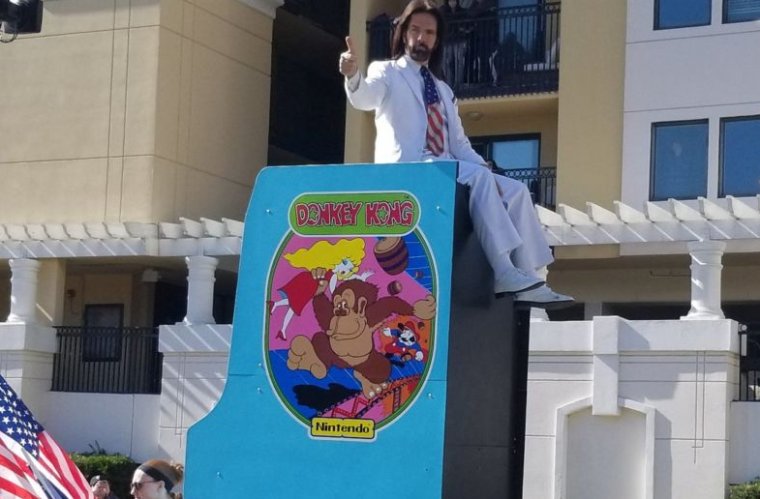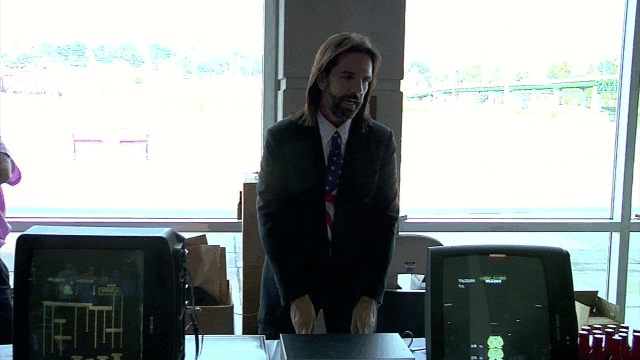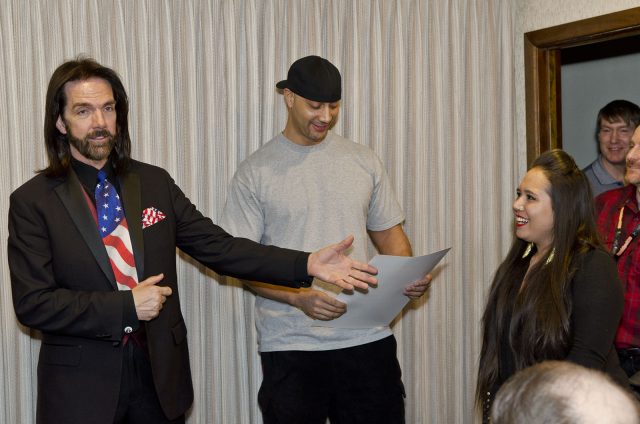
But court filings obtained by Ars Technica show that Mitchell had already filed suit against Twin Galaxies in a Los Angeles County court as early as April 2019.
Mitchell's defamation lawsuit—misfiled as "William James Mitchell vs. Twin Galexies, LLC [sic]" and not reported in previous press accounts—has been slowly building to a planned July anti-SLAPP hearing, where Twin Galaxies will make use of a statute that lets defendants quickly strike down lawsuits that threaten "public participation." Twin Galaxies says in court filings that its statements regarding Mitchell's scores were not defamatory and that finding in Mitchell's favor "would have chilling effects on the freedom of speech."
Speaking to Ars Technica, Mitchell said his lawsuit was officially filed last April to fit inside California's statute of limitations for defamation cases, which ran out a year after Twin Galaxies' April 2018 decision to strip Mitchell of all his records. That case was then officially served to Twin Galaxies in February and updated with a more detailed complaint in March, according to court records."My law firm and I are fully confident that we will establish a prima face [sic] case for all parts of the lawsuit," Mitchell told Ars Technica in a Twitter Direct Message.
An implicit "cheater" label
In his amended legal complaint, Mitchell argues that Twin Galaxies' published statement regarding his scores was "libelous on its face" because of the implication that "Mitchell did not achieve his record score legitimately." By accusing Mitchell of "impermissibly and secretly shortcutting [the site's] rules," Mitchell argues that Twin Galaxies "at least implied [that he was a cheater], so that any reasonable reader would understand Twin Galaxies has called Mitchell a cheater who deserved punishment by stripping him of all his Twin Galaxies records and banning him for life from submitting further records."
Twin Galaxies' April 2018 decision on Mitchell's Donkey Kong scores was careful not to explicitly call Mitchell a cheater or make any direct statements about his conduct or character. Instead, it focused more narrowly on the "demonstrated impossibility of original unmodified Donkey Kong arcade hardware to produce specific board transition images shown in the videotaped recordings of those adjudicated performances."

In his complaint, Mitchell repeats his previous claims that the result of Twin Galaxies' investigation was "pre-ordained," and that it was undertaken with a "biased observed intent on generating publicity and internet 'clicks' by accusing Mitchell, the most visible of all video gamers, of cheating."
Mitchell takes particular issue with Twin Galaxies' alleged refusal to consider "25 sworn affidavits" from eyewitnesses supporting his claims, in favor of an exclusive focus on "scientific" evidence. Twin Galaxies founder Walter Day is quoted saying that he "find[s] it unexplainable that my testimony as the founder and former owner is disregarded, while others, specifically the ones against Billy, are embraced."
Twin Galaxies' decision was made "with knowledge of its falsity or with reckless disregard for its truth," Mitchell alleges. "The most cursory unbiased investigation would have revealed beyond doubt that the record-breaking Donkey Kong scores were not played on emulation software in private places but were actually played on certified arcade boards in front of hundreds of people."
That's like, just your opinion, man
Twin Galaxies representatives did not have an official response to a request for comment from Ars. But in a wide-ranging March 30 anti-SLAPP motion to strike Mitchell's lawsuit, Twin Galaxies lawyers argue the site's statements regarding Mitchell weren't legally defamatory. That's in part because the statements were "nothing more than the opinion of Twin Galaxies," as evidenced by the leading clause of the sentence, "We now believe that they are not from an original unmodified DK arcade PCB, and so our investigation of the tape content ends with that conclusion and assertion [emphasis added]."
"It is not as if Twin Galaxies made the statement on its own volition without being prompted," the motion continues. "Instead, it was asked by the community as the final adjudicator of video game scores appearing on its website to consider evidence and render its opinion."
As a well-recognized public figure, Mitchell would also have to prove "actual malice" on Twin Galaxies' part to sustain a defamation claim, the site argues. But Twin Galaxies owner Jason Hall, "who headed the investigation for Twin Galaxies, declares in connection with this motion that he had no doubts about the fact that the score performance at issue were not from an original Donkey Kong Arcade system," the motion reads.
"I personally harbor no animosity or ill will toward Billy Mitchell," Hall writes in a public declaration filed with the court. "I am indifferent one way or another whether his Donkey Kong or other scores appear on the Twin Galaxies Website leaderboards. My only concern is to maintain the integrity of the leaderboards."
Neither the time nor the place
Twin Galaxies' motion highlights that the 3,770-post dispute thread surrounding Mitchell's Donkey Kong scores (which is now included in its entirety in the court record) was viewed nearly 2.4 million times as of March 14. That thread includes entries from 170 unique contributors and 211 public votes on the desired outcome of the case. (Mitchell lost that vote 198-13.)

The investigation surrounding that thread cost Twin Galaxies months of time and thousands of dollars in equipment and salaries to adjudicate, according to court documents. And after all that time and effort, Hall writes that Twin Galaxies "could not replicate the images and artifacts" present in Mitchell's video score submissions using "an original unmodified Donkey Kong Arcade system and PCB... and we tried. That fact showed me the scores were not from [an] Arcade cabinet, and they were performed on some other system."
While Twin Galaxies has never directly said that Mitchell's videos were created via MAME emulation, others have presented significant evidence that this is indeed the case.
"Twin Galaxies believes that this was the most professionally documented and thoroughly investigated video game score of all time," Hall said in his public declaration. "We are currently aware of no other video game score investigation that matches the expense, transparency, and length of investigative time that went into this dispute claim."
During Twin Galaxies' months-long public investigation, Mitchell "had the opportunity to submit evidence in support of his score performances and to engage in the lively public debate about the scores," Twin Galaxies writes in its motion. "He chose not to do so. Instead of settling his grievance then, he waited until the adjudication process had come to end and brought suit in court to prove the veracity of his Donkey Kong score performances."
But court proceedings are "not the forum for [Mitchell] to get revenge," Twin Galaxies argues, claiming that its statements regarding Mitchell were "protected activity" under the First Amendment, and Mitchell's suit "seeks to chill the expression of free speech."
To entertain Mitchell's argument would set a precedent that would let others challenge Twin Galaxies score decisions in court, the site writes. That would lead to an "unnecessary waste of the courts' precious resources" and also "have the practical effect of discouraging Twin Galaxies and others from debating video game scores in a public forum," the site argues.
Both sides will have the opportunity to debate these issues on July 6, when a judge is scheduled to hear arguments on Twin Galaxies' anti-SLAPP motion. Whatever the decision, though, we don't imagine this will be the last we'll hear on this matter from Mitchell.
"case" - Google News
May 04, 2020 at 06:23PM
https://ift.tt/2KZqOhW
Billy Mitchell takes his Donkey Kong high-score cheating case to court - Ars Technica
"case" - Google News
https://ift.tt/37dicO5
https://ift.tt/2VTi5Ee
Bagikan Berita Ini














0 Response to "Billy Mitchell takes his Donkey Kong high-score cheating case to court - Ars Technica"
Post a Comment